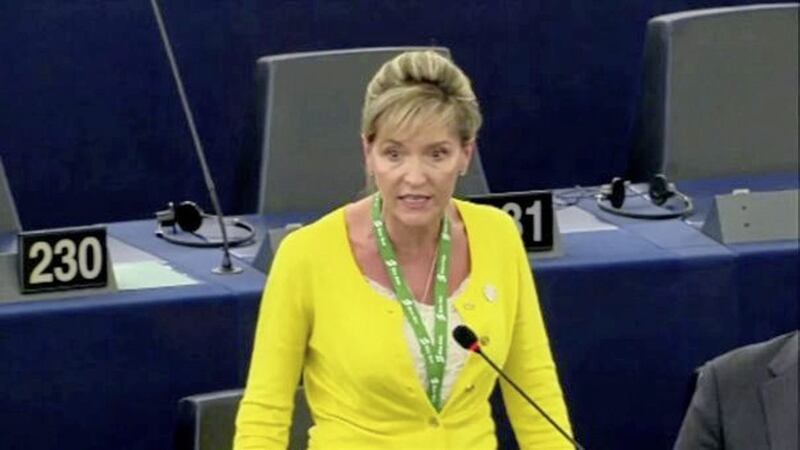At least the new Minister for Foreign Affairs is a bit more proactive about the north than his predecessors, who were pretty ineffectual.
However Simon Coveney needs more tutorials about this place.
He told the press that it’s ‘madness’ not to have an executive in place as that means the north has no voice at the Brexit talks table.
That’s just nonsense. Furthermore, if he thinks that is the case he has no idea just how bad the north’s situation is.
If an executive were established tomorrow the north would still have no voice at the Brexit talks table. Scotland and Wales have no voice either and Scotland has a government and parliament instead of a toy town assembly to administer an annual block grant. Nicola Sturgeon has tried unsuccessfully to find a place at Brussels but to her intense annoyance has been rebuffed.
The EU27 will only negotiate with the UK government.
Ah you say, but what Coveney meant was the north has no input into the UK position because there’s no executive. No he didn’t, but suppose he did, he’d still be wrong.
Only last week Labour asked the Scottish secretary to convene a meeting of the Joint Ministerial Committee (JMC) set up last year to allow ministers from devolved administrations discuss the Brexit process. It hasn’t met since February. Labour accused the British government of ‘excluding devolved administrations from having their voice heard and inputting into the Brexit process.’
Outside the redundant JMC attempts by Nicola Sturgeon to have Scottish interests taken into account have been ignored. The shambolic ‘negotiations’ are being conducted solely by tiny warring cliques around Theresa May and David Davis.
Ironically the only people from the north who have any meaningful input into talks at Brussels are Sinn Féin through their MEPs.
Sinn Féin MEPs try to influence events through the Irish government and the European Parliament which, don’t forget, has a veto on the final outcome.
The British behaviour so far, especially the leaked paper on the treatment of EU citizens, has managed to put up the backs of so many MEPs that Sinn Féin finds ready listeners in the parliament not least through Guy Verhofstadt the parliament’s point man in the Brexit negotiations.
Verhofstadt is strongly opposed to Brexit and very supportive of Ireland’s plight. He has even gone so far as to propose that the Republic should have extra MEPs to represent the EU citizens in the north.
It’s entirely appropriate that Sinn Féin should operate on the side of the EU27 in the negotiations, first because the majority of people in Ireland north and south don’t want to leave the EU and secondly because possibly the most ignorant and incompetent negotiator Britain has ever sent abroad will not negotiate in the interests of anyone on this island.
Davis is an anti-EU ideologue who has never taken the trouble to learn any detail about the EU’s structures since he detests them all. Remember, until this year he thought Britain could make a separate deal with Germany about car imports.
Clinching a political deal on the border and incorporating the Good Friday Agreement ‘in all its parts’ – a phrase Sinn Féin claims they had inserted – may be one of the EU27’s three priorities but it counts for nothing in Britain’s aims and certainly not for any of the forty or fifty right wingers who hold Theresa May captive.
In all this mess the only real experts in Brussels on the north’s intricacies are the small Sinn Féin group advising the party’s MEPs. The MEPs meet Irish and other EU officials, explain the complexities of holding an Irish passport in the north to German MEPs and try to keep emphasis on the north as a special case, not what the British have tried to do, make it a precedent to advance their own aims for the Dover-Calais border.
Now compare all this with the Tories’ DUP dupes who handed carte blanche to the British government and incredibly guaranteed their support for all eight Brexit bills without even seeing the texts. In return the bought and paid for DUP were not consulted on one syllable of the British negotiating position.









